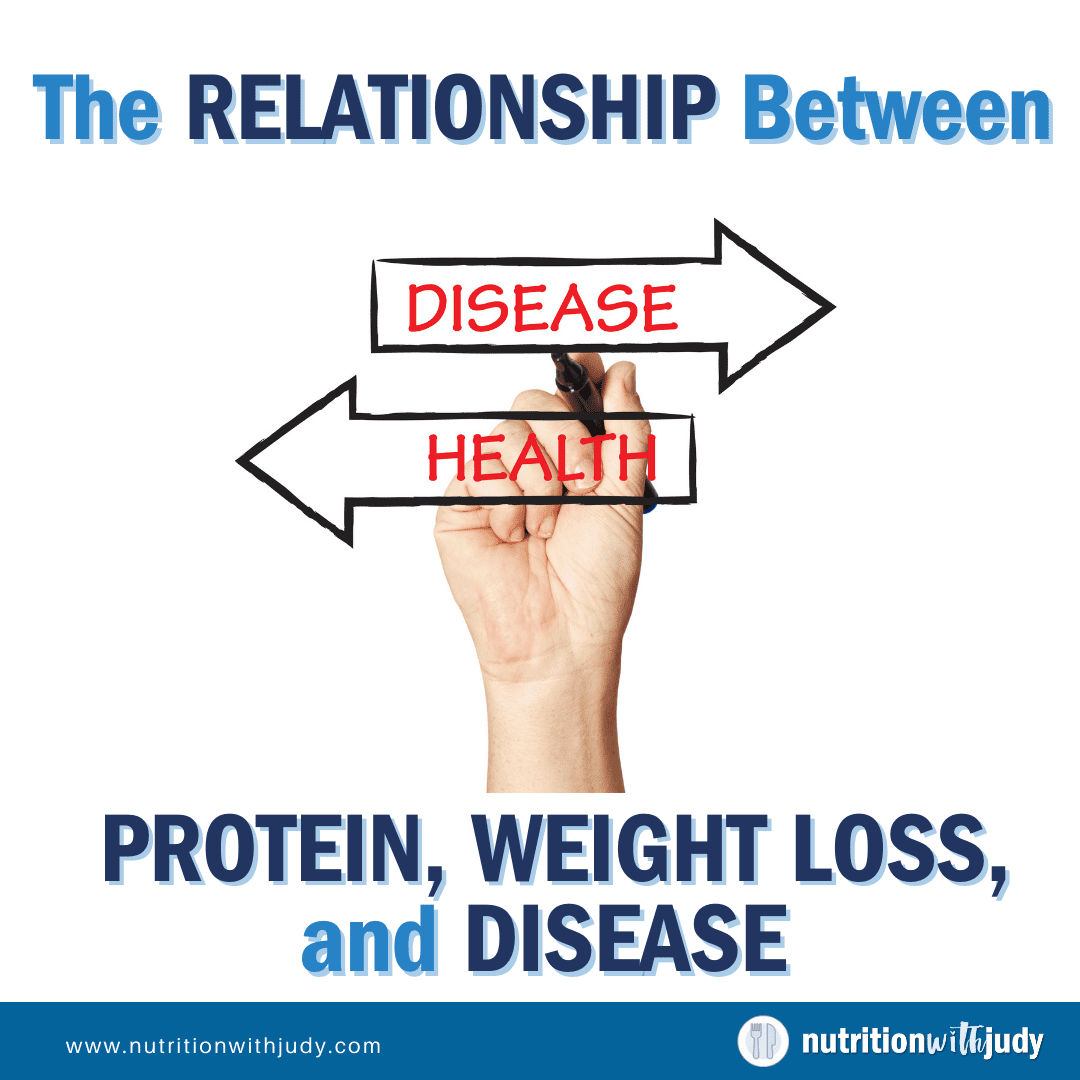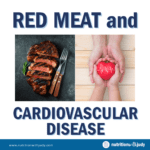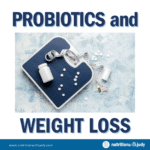

The Relationship Between Protein, Weight Loss, and Disease


Original Publish Date: 7/9/22
This week on the Nutrition with Judy channel, I interviewed Dr. Donald Layman. A few carnivores were disgruntled at the fact that Dr. Layman likes carbs. I cannot stress this enough but just because a person likes carbs doesn’t mean every single thing they believe should be dismissed.
This is very black-and-white thinking and it’s frankly unhealthy. There are some things that you will disagree with, even with your best friend. Do you write off your best friend? Or your children? Or your parents?
Protein Requirements
If people watched the full interview, he talks about the importance of sharing the individual needs for amino acids to ensure we are getting enough, especially with all the plant-based proteins coming to market. He’s concerned that plant-based proteins will be inadequate for amino acids.
He also brought up how our body can only really benefit from 40-60 grams of protein per meal (there’s nuance to this). So, it may not be ideal for someone on the carnivore diet who is eating one meal a day (OMAD). Having multiple meals a day may be more advantageous for muscle preservation.
He also discusses how if you want to lose weight without catabolizing muscle, the best way to do it is to eat enough protein (especially earlier on in the day and if you are older), and do specific exercises such as pilates and walking. He shares studies on how this will help maintain muscle mass (not create muscle mass).
He brought up the importance of leucine and how it’s nearly impossible to get in plant-based foods.
These are just a few golden nuggets he’s shared that align with the carnivore diet and can help meat-only carnivores thrive.
Yet if you look at the YouTube comments, the response was bashing Dr. Layman for his liking for carbs. He does better with 100+ grams of carbs. Fine, let him be. Everyone has a right to their own opinion.
That doesn’t mean we have to eat those carbs or that all his other information/research is incorrect.
Dogma vs. Reality
Be confident in your diet and what works for you. You don’t need every single leader or expert to be singing the same tune as you. It’s frankly what has got us in trouble with politics and everything else going on in the world today. Be comfortable in your beliefs and still love people who aren’t necessarily the same. Only with love and empathy can we really bring about change.
We love black-and-white thinking, but humans are much more complex than that. I hope we can glean wisdom from experts in their respective fields because that’s how we can learn new things and improve upon carnivore when it isn’t working.
If I lived in the carnivore diet echo chamber, I’d still be:
- believing that you can’t gain weight on the carnivore diet
- thinking that if people just “carnivored-harder”, they’d have a six-pack
- saying meat-only heals everything
- singing praises for 2-3 lbs of only beef
- recommending more liver and organs
- advocating for zero supplements on the carnivore diet
- saying no fasting is necessary
Well after over 500 in-depth carnivore clients, I can tell you that context and nuance matter. And the dogmatic beliefs above are never the answer for every single person. It’s part of my message at KetoCon: you have to find what works for you.
Here’s an excerpt from Dr. Layman.
“Protein has a hugely important role to play in weight loss and muscle gain. This is because they are inseparable assets in both processes. One of the first roles protein has in weight loss is the contribution to weight loss and a change in body composition.
For instance, a person going from 300 lbs to 175 lbs but still having a high level of body fat at 175 lbs, such a weight shift did not make that person healthier, as that indicates the loss of lean body mass.
If you starve yourself or go on a low-calorie, low-protein diet, you will lose fat and lean mass at a 1:1 ratio which is profoundly antithetical to optimal health. However, if you reduce your calories and increase your protein, you can shift that proportion of weight loss almost exclusively to fat.
Exercise will do the same thing. Ideally, weight loss should increase with exercise, require more protein, and cause a reduction in calories. By doing this, you will lose nothing but body fat and, in turn, become healthier. A higher intake of protein also increases thermogenesis [i.e., the process by which the body burns calories to produce heat].
For instance, to compare protein with carbohydrates, there is a 15% increase in calories burned per calories consumed from protein. Hence, a higher protein diet will allow you to eat more calories and still lose weight. Protein is also very satiating, allowing someone who is trying to lose weight to feel fuller on a low-calorie intake.
The Importance of Protein for Chronic Conditions
What is the importance of protein in treating certain conditions like diabetes, cardiovascular disease, and obesity?
When it comes to obesity, its role is primarily in its efficacy in a weight loss plan, as we just discussed. This relates to diabetes because obesity and diabetes very often run parallel. What we know about diabetes is that it is a problem of excess blood sugar.
Glucose is actually highly toxic to the body, so it is kept within very narrow ranges. Diabetes exceeds these ranges. One way to correct this is to lower your carbohydrate intake to roughly 140 grams of carbohydrates per day or lower.
One of the easiest ways to do this is by increasing your protein. There have been multiple studies with early diagnosed diabetics, where people have a higher protein intake (1.5–1.6 grams per kg per day) and low carbohydrate intake. There is an immediate correction of virtually all the problems of metabolic syndrome.
Obesity and diabetes are major complications that are major risk factors for cardiovascular disease, but cardiovascular disease has two tracts. One is driven primarily by triglycerides (diabetes).
The other is driven by LDL cholesterol. Lower carbohydrates and higher protein definitely correct the triglyceride aspect of cardiovascular disease. The LDL portion is more commonly genetically based. The primary dietary cause of an increase in LDL is insulin.
If you lower insulin, you can lower LDL too. When it comes to this side of the cardiovascular disease spectrum, a high-protein diet will be of little use. In any case, excess calories and a sedentary lifestyle are almost causal routes to obesity, which drastically increases one’s risk for diabetes, which is the main cause of cardiovascular disease.
A higher protein intake allows people to control their calories, which is ultimately a great baseline scenario for preventative purposes. People often try to make saturated fat, cholesterol, sugar, salt, or any other individual factor out to be at the top of the list when it comes to the cause of these conditions when excess calories are the real risk factor.
Given that protein can help people get their calories under control, helping them improve their body composition, a high protein diet is a useful tool in the prevention of these metabolic diseases/conditions.” (Source)
In health,
Judy



